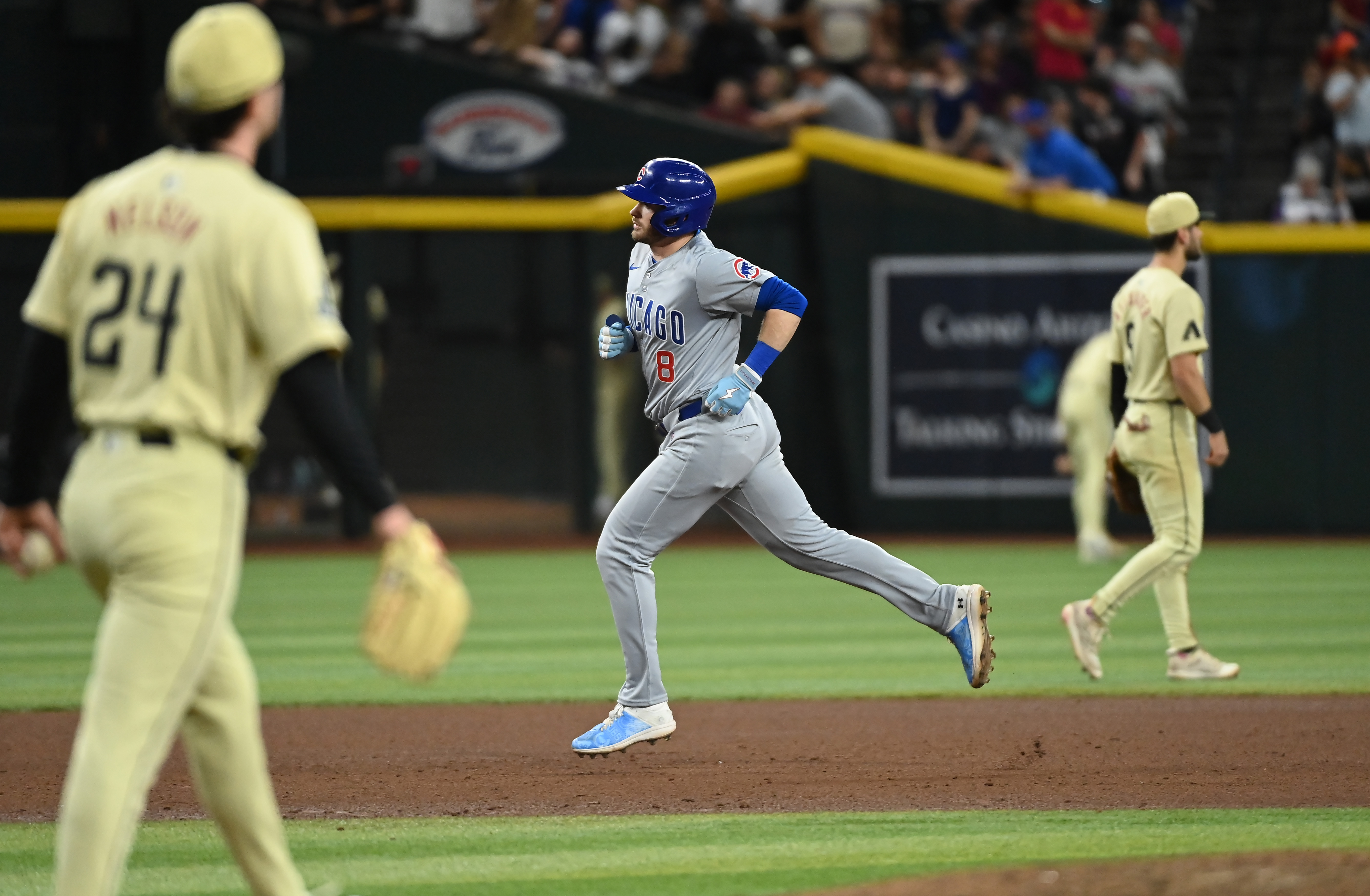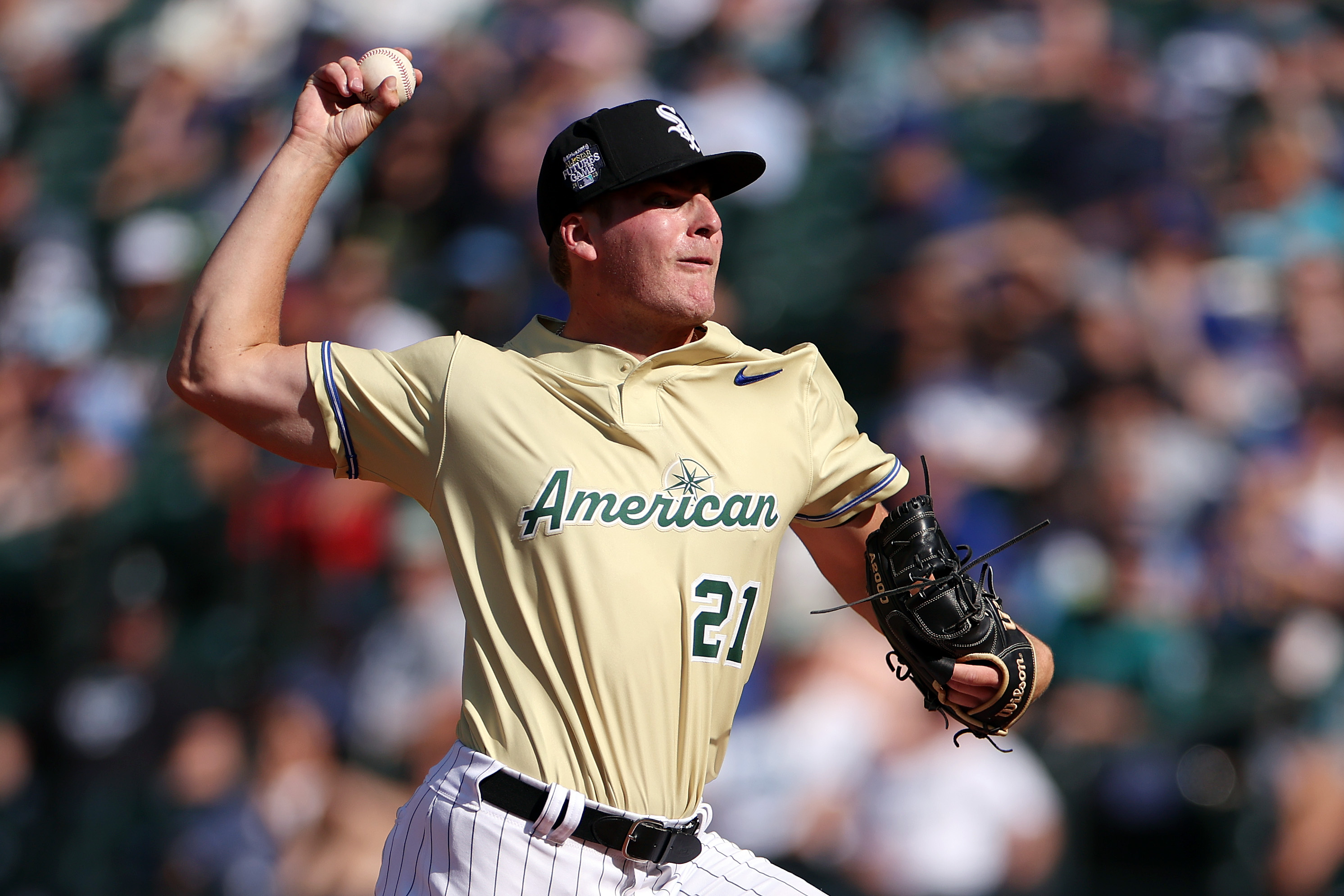
The Cubs didn’t make one huge splash this winter, hoping the ripple effect from their smaller moves will create a pitching staff that can win a World Series.
David Price put the word out that he wanted to come to Chicago, play for Joe Maddon again and be part of the team that finally rides down Michigan Avenue for a championship parade. But the Cubs already had five more seasons to go on Jon Lester’s $155 million megadeal and didn’t feel as desperate as the Boston Red Sox.
So much for Price having a problem with David Ortiz and the fans at Fenway Park. President of baseball operations Theo Epstein told Boston’s WEEI that the Cubs finished “a distant third” in the bidding war, or roughly $50 million less than the $217 million the Red Sox guaranteed.
Three seasons of Shelby Miller would have cost the Cubs at least a young, middle-of-the-order hitter (Jorge Soler) and the organization’s best pitching prospect (Duane Underwood), and the Atlanta Braves still would have wanted more.
The Arizona Diamondbacks met Atlanta’s demands at the winter meetings, giving up last year’s No. 1 overall pick (Dansby Swanson), a good pitching prospect (Aaron Blair) and a legitimate big-league outfielder (Ender Inciarte).
[MORE CUBS: Why Cubs spent big this winter (and won't be major players next offseason)]
That same week in Nashville, the Cubs completed the Starlin Castro-for-Adam Warren trade they pitched to the New York Yankees at the July 31 deadline. Even before most of the industry checked into the Opryland, the Cubs had already agreed to a two-year, $32 million contract with John Lackey.
MLB
The Cubs wanted to close the Lackey deal before Zack Greinke made his anticipated decision between the Los Angeles Dodgers and San Francisco Giants and reset the market. Hours after the Lackey news broke, word leaked out that the Diamondbacks had shocked the baseball world with a six-year, $206 million offer Greinke couldn’t refuse.
“We really came to feel like the price of poker was very high to acquire starting pitching,” Epstein said. “Years and dollars were really significant for starters of note in free agency — and came with a significant amount of risk, frankly, that we weren’t completely comfortable with.
“(In) the trade market, we felt like in a lot of cases we would have had to pay like two dollars on the dollar almost in return.
“I think Lackey on a two-year deal, Warren with three years of control with the ability to start and also be effective (out of) the ‘pen made a lot of sense for us as a reaction to what was going on in the market.”
[MORE CUBS: Adam Warren brings 'World Series or die' mentality from Yankees to Cubs]
Lester kept recruiting Lackey, who had already done a big contract with Epstein when he ran the Red Sox and wanted to win a third World Series ring. Yankee insiders raved about Warren’s guts and unselfish attitude, while Cubs people think this swingman can be sneaky good outside the American League East.
“We believe he can be a starting pitcher — and a good one — in the National League Central,” Epstein said. “But we also think he can be extremely effective out of the bullpen. His ability to do both makes him incredibly valuable to us.”
Whether or not Warren becomes a glue guy for the entire pitching staff, the Cubs bought insurance by bringing back Clayton Richard, Trevor Cahill and Travis Wood for less than $13 million combined. Richard has 132 starts and two 14-win seasons on his big-league resume, while Cahill and Wood each made an All-Star team before reinventing themselves as relievers.
Pitching coach Chris Bosio even said Cahill turned down a two-year offer to start for the Pittsburgh Pirates — an organization that’s had so much success with pitching reclamation projects — and took a one-year, $4.25 million deal to return to the Cubs in a hybrid role.
“We have four guys that have really four pitches — some guys (have) five — it depends on a righty-lefty matchup and the numbers,” Bosio said. “But the versatility — teams are starting to try to follow what we’re doing. Other teams coveted guys that we had. But guys wanted to come here because they’re comfortable with what they’re doing.”
[SHOP CUBS: Get your Cubs gear right here]
The Cubs still have their intricate game-planning system, reigning Cy Young Award winner Jake Arrieta and a manager with a great feel for in-game decisions as well as big-picture concerns about workload and overuse.
The farm system hasn’t come anywhere close to delivering enough pitching talent and matching what’s been an unbelievable run for the organization’s young hitters. But the Cubs still put together a pitching staff that won 97 games and led the majors in WAR (24.2), WHIP (1.152) and strikeouts (1,431) last season.
“You can have impact pitching without necessarily having all household names (or) bona fide top-of-the-rotation guys,” Epstein said. “Knock on wood, we have to go out and accomplish this. But if you have a (really deep) staff where there’s no negative contributors, no replacement-level pitchers, all solid pitchers who throw strikes and can follow a game plan and miss bats and be effective, that can make you one of the better pitching staffs.
“I’d like to think if everyone pitches up to their potential (this) year, we’re getting close to that ideal.”


